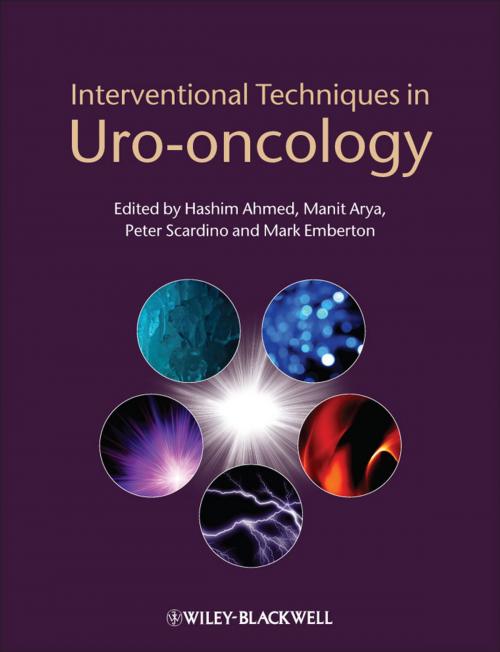| Author: | ISBN: | 9781444329919 | |
| Publisher: | Wiley | Publication: | February 18, 2011 |
| Imprint: | Wiley-Blackwell | Language: | English |
| Author: | |
| ISBN: | 9781444329919 |
| Publisher: | Wiley |
| Publication: | February 18, 2011 |
| Imprint: | Wiley-Blackwell |
| Language: | English |
Minimally invasive surgical techniques are moving into the mainstream of urological practice. Even less invasive techniques, some of which can involve no use of the knife whatsoever, are rapidly being developed and implemented for treating urological cancer. Interventional Techniques in Uro-oncology is the first text to cover these techniques in total and provides a comprehensive review of the state-of-the-art minimally invasive interventions.
This well-illustrated reference provides the basic science behind each technique before explaining when and how best to perform them. It examines their use in different clinical settings, the advantages and disadvantages of each technique in the management of specific tumor types, and their suitability for different patients. Future techniques are discussed including the potential of nanotechnology in the delivery of urologic healthcare. Each chapter is easy to navigate with key points and references.
Interventional Techniques in Uro-oncology is an essential reference for training and practicing oncologists, urologists and radiologists as well as the general physician with a keen interest in cancer care. Its approachable style will also inform non-experts on what is available and whether a particular intervention is suitable for their patient in the clinic.
Minimally invasive surgical techniques are moving into the mainstream of urological practice. Even less invasive techniques, some of which can involve no use of the knife whatsoever, are rapidly being developed and implemented for treating urological cancer. Interventional Techniques in Uro-oncology is the first text to cover these techniques in total and provides a comprehensive review of the state-of-the-art minimally invasive interventions.
This well-illustrated reference provides the basic science behind each technique before explaining when and how best to perform them. It examines their use in different clinical settings, the advantages and disadvantages of each technique in the management of specific tumor types, and their suitability for different patients. Future techniques are discussed including the potential of nanotechnology in the delivery of urologic healthcare. Each chapter is easy to navigate with key points and references.
Interventional Techniques in Uro-oncology is an essential reference for training and practicing oncologists, urologists and radiologists as well as the general physician with a keen interest in cancer care. Its approachable style will also inform non-experts on what is available and whether a particular intervention is suitable for their patient in the clinic.















